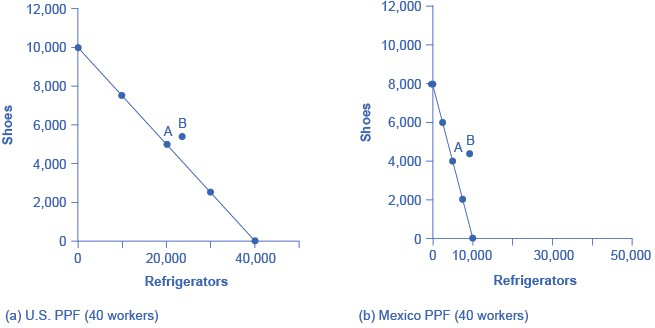How does Comparative Advantage give rise to Mutually Beneficial Trade?
When nations increase production in their area of comparative advantage and trade with each other, both countries can benefit. Again, the production possibility frontier is a useful tool to visualize this benefit.
As always, the slope of the production possibility frontier for each country is the opportunity cost of one refrigerator in terms of foregone shoe production–when labor is transferred from producing the latter to producing the former.

Let’s say that, in the situation before trade, each nation prefers to produce a combination of goods that is most favorable to it.
The remarkable insight of comparative advantage: is that, even when one country has an absolute advantage in all goods and another country has an absolute disadvantage in all goods, both countries can still benefit from trade. Even though the United States has an absolute advantage in producing both refrigerators and shoes, it makes economic sense for it to specialize in the good for which it has a comparative advantage. The United States will export refrigerators and in return import shoes.
